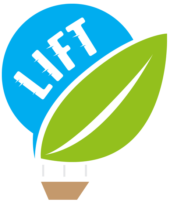 |
INRAE (Project Coordinator) – French National Institute for Research on Agriculture, Food and the Environment, France |
INRAE is the French institute for research on agriculture, food and the environment, a leading centre in this field in Europe. INRAE is a public targeted research institute under the ministry in charge of research and the ministry in charge of agriculture, and has a wide scope: food; agriculture; environment. It is structured into 14 research divisions and 18 research centres located across France.
The INRAE partner in LIFT includes researchers from four joint research units (UMR) between INRAE and agricultural universities: UMR GREThA, UMR SMART-LERECO, UMR CESAER and UMR TERRITOIRES. The economics research unit UMR GREThA is located in Bordeaux. The economics research unit UMR SMART-LERECO is located in Rennes, Nantes and Angers. The social sciences’ research unit UMR CESAER is located in Dijon. The multidisciplinary research unit UMR TERRITOIRES, formerly known as UMR METAFORT, is located in Clermont-Ferrand.
Website: www.inrae.fr
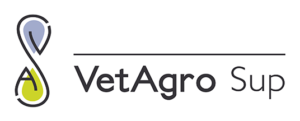 |
VetAgro Sup – Institute of higher education and research for food, animal health, agronomic and environmental sciences (Institut d’enseignement supérieur et de recherche en alimentation, santé animale, sciences agronomiques et de l’environnnement), France |
VetAgro Sup is an Institute of higher education in food science, animal health, agricultural and environmental sciences. The mission of VetAgro Sup is to develop training and research on life science challenges.
VetAgro Sup is located in France on two campuses: Marcy-l’Etoile (close to Lyon) and Lempdes (suburb of Clermont-Ferrand). 400 scientific and administrative workers are located on more than 50 hectares and 60 000 square meters including lecture hall, clinic and technological platforms. A budget of 40 million Euros allows VetAgro Sup to have financial resources to improve research and teaching capabilities.
The Institute’s main priorities are to train 650 veterinary physicians and 350 engineers in agriculture, food science and local development, to produce knowledge and to provide support to economic actors in the fields of food sciences, animal health, agricultural and environmental sciences. VetAgro Sup offers master’s programs (co-organized with other academic institutions) to 100 Master’s students in particular in the field of public policies in agricultural and veterinary public health.
More than 120 scientists, assisted by technical staff, are part of research units, mostly in cooperation with academic institutions but also with other national public research organizations (CNRS, INRAE, Inserm, ANSES and other). The institute is a member of the “Université de Lyon” and “Université Clermont Auvergne”. Scientific and administrative platforms located on site offer an optimal support for both teaching and research activities. The veterinary teaching hospital welcomes clinical cases for each domestic species, in connection with veterinary physicians and in order to improve animal health. Technological platforms related to agronomy and food science technology also offer expertise for professional partners.
VetAgro Sup is in compliance with international standards. The AVMA’s accreditation (American Veterinary Medical Association) obtained in 2014 offers opportunities to international cooperation and exchange programs for teachers and students with veterinary universities in the USA or Canada.
Some VetAgro Sup researchers have joined for ten years the joint research unit “Territoires” located in Clermont-Ferrand. This research unit has brought together some 110 researchers, research fellows, engineers and technicians from INRAE. Researchers (agronomists, animal scientists and economists) involved in the LIFT project are experts on farm management, agricultural economics, farming system and territorial development. They analyse drivers and their effect on adoption of new farming system and especially farmers’ decision-making, working organisation on farm and working conditions for the on-farm labour force.
Website: www.vetagro-sup.fr
 |
SRUC – Scotland’s Rural College, United Kingdom |
SRUC research is focused on rural, environmental and land-based activity and underpins our education and consultancy activities. Our work addresses health and productivity in animals, animal welfare and crops, promotes low carbon farming and increases farm output through efficiency and innovation through four Research Groups: Animal & Veterinary Sciences, Crop & Soil Systems, Future Farming Systems, and Land Economy, Environment & Society.
Land Economy Environment and Society (LEES) is one of the largest social scientist groups working in the rural, agricultural, land and food based sectors in the UK with 26 staff and around 20 socio-economics focused PhD students. Our research covers Scotland and the UK, as well as Europe and the wider international arena, and focusses on a number of main themes: the analysis of barriers for the uptake of sustainable technologies within food supply chains; policy analysis of the food supply chain, environment and rural society; production economics with a focus on the analysis of efficiency and productivity of the different stages of the food chain; environmental and resource economics, contributing to policy responses on climate change, antimicrobial resistance and provision of other ecosystem services; analysis of consumers’ trends and issues such as health and nutrition, uptake of healthy foods and behaviour regarding food waste; and rural community resilience, making recommendations on the challenges and opportunities facing rural communities.
Hill & Mountain Research Centre focuses on sustainable land management systems in the context of international, national and local land use policies, with an emphasis on reducing greenhouse gas emissions. Current interests include: options for reducing Greenhouse Gas emissions from upland grazing systems; ecosystem services (including carbon sequestration and biodiversity) provided by grazed upland landscapes; circadian rhythm as a welfare indicator in extensive grazing systems; bioeconomic modelling of livestock in upland environments; participatory research with hill farmers, environmental managers and policy-makers.
Other current projects in which SRUC LIFT team is involved include Transition Paths to Sustainable Legume-Based Systems in Europe (TRUE) (European Commission H2020); Bean Breeding and Adoption in Changing Climates in Post-conflict Colombia (BACO) (RCUK-CIAT Newton Fund); Towards BIO-smart Livestock Farming in Colombia: Cultural Landscapes, Silvo-pastoral Systems and Biodiversity (RCUK-CIAT Newton Fund); Livestock’s Role in Food System Resilience in Remote, Upland Regions (BBSRC).
Website: www.sruc.ac.uk
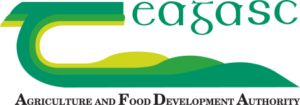 |
Teagasc – Agriculture and Food Development Authority, Ireland |
Teagasc – the Agriculture and Food Development Authority – is the national body in Ireland providing integrated research, advisory and training services to the agriculture and food industry and rural communities. The Teagasc mission is to support science-based innovation in the agri-food sector and wider bio-economy that will underpin profitability, competitiveness and sustainability. This is achieved through the close coupling of research and knowledge transfer in four programme areas:
– Animal and Grassland Research and Innovation
– Crops, Environment and Land Use
– Food
– Rural Economy and Development
Each of these programmes is composed of research, development and knowledge-transfer/industry-development departments, as outlined in the table below. Research is conducted at seven dedicated locations, while knowledge transfer professionals are located throughout the country. Teagasc annual research portfolio comprises some 300 research projects, carried out by 500 scientific and technical staff in our research centres throughout Ireland. In order to maximise the impact of our research, Teagasc actively collaborates with research organisations across the world. This collaboration stretches from individual projects and publications right up to formal alliances and partnerships. Scroll to the end of this page for details on some of our formal collaborations.
Teagasc produce a wide range of publications covering all aspects of our research, advisory and training programmes. These include leaflets, booklets, training manuals, a research journal, End of Project Research Reports (Technology Updates), survey reports and conference proceedings.
Teagasc, through its research in the fields of agriculture and food, has a long tradition of adding significant value to Irish and international organisations through access to expertise, resources, infrastructure and/or intellectual property. Teagasc is equally committed to transferring its latest discoveries from the research lab to industry for the benefit of the Irish economy, through facilitation of access to our cutting-edge research, infrastructure and highly qualified and skilled employees. Involvement with Teagasc, through contract and collaborative research, access to technical and consultancy services and commercialisation opportunities is managed through its Technology Transfer Office (TTO).
Website: www.teagasc.ie
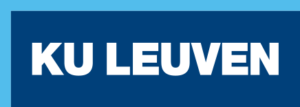 |
KU Leuven – Catholic University of Leuven (Katholieke Universiteit Leuven), Belgium |
KU Leuven is dedicated to education and research in nearly all fields. Its fifteen faculties offer education, while research activities are organized by the departments and research groups. These faculties and departments, in turn, are clustered into three groups: Humanities and Social Sciences, Science, Engineering and Technology (SET), and Biomedical Sciences. Each of these groups has a doctoral school for its doctoral training programmes. KU Leuven boasts fourteen campuses, spread across 10 cities in Flanders.
KU Leuven provides a stimulating home for all types of research, from fundamental to applied, and from individual research projects to large-scale, international research consortia. KU Leuven is a research intensive university, a setting for both fundamental and applied research, with a strong inter- and multidiscplinary background and a clear international orientation. We aim for research excellence, a contribution to societal and cultural debates and the realisation of a real knowledge society. Individual initiative, critical reflection, collaboration, solidarity, academic freedom and diversity are key concepts in realising these goals.
To realise its manifold mission, KU Leuven can rely on a great source of ‘capital’: its talented and dedicated staff. Excluding University Hospitals Leuven (the network of KU Leuven university hospitals), as of 2016 KU Leuven employs 13133 people, of which 1747 tenured academic staff, 1712 postdoctoral staff, 343 teaching staff and 4043 administrative and logistic staff.
Leuven participated in over 540 highly competitive European research projects in the 7th Framework programme (2007-2013), ranking sixth in the league of HES institutions participating in FP7. In Horizon 2020, KU Leuven maintains its sixth position with regard to number of participations and currently has been approved 260 projects, worth 145.9 million Euros.
Website: www.kuleuven.be/english
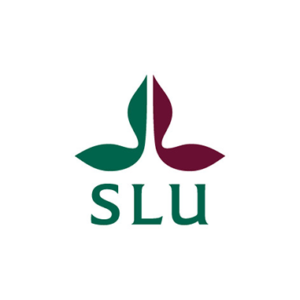 |
SLU – Swedish University of Agricultural Sciences (Sveriges lantbruksuniversitet), Department of Economics, Sweden |
SLU is a leading education and research institution in the area of sustainable use and management of biological natural resources. SLU offers programs and courses, ranging from Bachelor’s to Master’s and PhD level.
The Department of Economics at SLU holds a strong position in interdisciplinary research and teaching within key areas, such as farm management and decision-making, policy analysis, risk analysis, farm sustainability, use of natural resources and rural entrepreneurship. The vision of the Department of Economics at SLU is to be a leading European institution in economic research, policy analysis and academic education within the agricultural, resource, and environmental sectors.
SLU – Department of economics is actively involved in international research projects, among which are the three Horizon 2020 Projects: LIFT – Low Input Farming and Territories, SURE-Farm – Towards Sustainable and Resilient EU Farming Systems, and UNISECO – Understanding and improving the sustainability of agro-ecological farming systems in the EU.
Website: www.slu.se/en/departments/economics
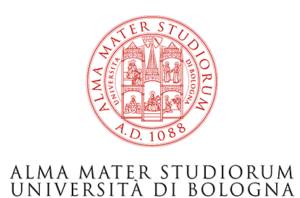 |
UNIBO – University of Bologna (Alma Mater Studiorum – Università di Bologna), Italy |
Founded in 1088, UNIBO is known as the oldest University of the western world. Nowadays, UNIBO still remains one of the most important institutions of higher education across Europe and the second largest university in Italy. With regard to the capability of attracting funding for research and innovation, UNIBO is very active both at National and European level in all the research areas. In the framework of the Societal Challenge II UNIBO is coordinating 3 projects (OLEUM, PROVIDE, TROPICSAFE), and committed as a partner in 30 bioeconomy projects (4 under BBI JU, 23 under SC2) with a total EU contribution of over 8.5 mln Euro.
The LIFT project specifically involves two departments. (1) The Department of Agricultural and Food Sciences: the department deals with a broad range of disciplines related to agricultural sciences, food and environment. The research unit involved in LIFT is led by Davide Viaggi and deals with agriculture and environmental resource economics and policy, evaluation of technical development in agriculture, farm planning models and decision support models. Tools used involve a wide range of simulation and evaluation techniques, including mathematical programming, econometric methods, monetary evaluation techniques, agent-based and principal-agent models. (2) LIFT is carried out in collaboration with the Department of Statistical Sciences, which hosts advanced researches in a number of fields including: statistical methodology; econometrics; applied economics and statistics; demographics; agri-food economics and statistics.
Website: www.unibo.it
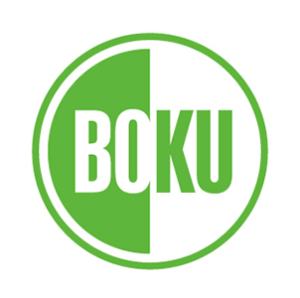 |
BOKU – University of Natural Resources and Life Sciences, Vienna (Universität für Bodenkultur Wien), Austria – Department of Economics and Social Sciences, Institute of Agricultural and Forestry Economics |
The University of Natural Resources and Life Sciences, the Alma Mater Viridis, perceives itself as a teaching and research centre for renewable resources, which are necessary for human life. It is BOKU’s objective to help make a considerable contribution to the conservation and protection of resources for future generations by providing diversity in its fields of study. Connecting natural sciences, engineering and economic sciences, we wish to increase knowledge of the ecologically and economically sustainable use of natural resources, to provide a harmoniously cultivated landscape.
An important feature of BOKU’s research lies in its recognition of future problems and our efforts to provide and stimulate practical relevance, internationality and among disciplines. Interdisciplinary cooperation of scientists on an international level should help create comprehensive questions about the future of our planet and lead to innovative problem solving.
The research focus of BOKUs ‘Department of Economics and Social Sciences’ is on economics, policy and law of the agricultural, food and forest sector, natural resources and the environment. The department particularly works in the fields of sustainable development, management of biological resources and environmental policy, governance, rural development and agricultural sociology as well as optimisation and valuation of managerial processes in agriculture, forestry, timber industry, environmental economics and food economy. The research of the Institute of Agricultural and Forestry Economics (AFO) focuses on agricultural and forestry management. The institute develops and evaluates concepts for the sustainable production of biological resources. Special emphasis is on the topic of multi-functionality and the diverse functions of agriculture and forestry. AFO has participated in leading roles in various EU-projects (PROVIDE, CLAIM, FarmPath, rethink and the twinning project ENHANCE).
Website: www.wiso.boku.ac.at/en/afo
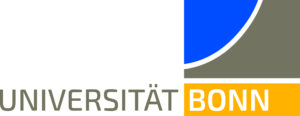 |
UBO – University of Bonn (Rheinische Friedrich-Wilhelms-Universität Bonn), Germany – Economic Modelling of Agricultural Systems Group, Institute for Food and Resource Economics |
The focus of work of the Economic Modeling of Agricultural Systems Group at the Institute for Food and Resource Economics, University Bonn is on the development and application of economic simulation models from farm to global scale to analyze quantitatively questions in the agri-food system related to sustainability and provision of eco-systems services by agri-food systems. Recent examples relate to application of stochastic-dynamic programming models to determine optimal farm management and investment strategies in a changing market and policy environment considering risk, regional scale analysis of structural change and nutrient exchanges between farms in Agent-Based Models and long-term projections of the global food system based on Computable General Equilibrium Analysis.
The working group, established in 2017, serves as a hub for economic modeling in research and teaching at institute and faculty level. Master students enrolled in our AFECO program can obtain a minor in economic modeling based on our courses. We collaborate in numerous projects within national and international research networks, and offer our students and young researchers an internationally oriented teaching and research environment. We are part of the Rheinische Friedrich-Wilhelms-Universitat Bonn as an international research university that offers a wide range of degree programs. With 200 years of history, about 38,000 students, over 6.000 employees, and an excellent domestic and international reputation, Bonn University is among Germany’s leading universities.
Website: www.ilr.uni-bonn.de/em/em_e.htm
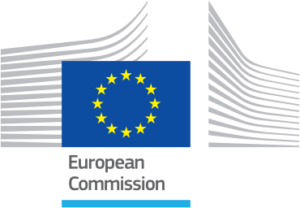 |
JRC – Joint Research Centre of the European Commission, Italy |
The Joint Research Centre is the European Commission’s science and knowledge service which employs scientists to carry out research in order to provide independent scientific advice and support to EU policy.
Independent scientific evidence for EU policies deals with the following:
– as the European Commission’s science and knowledge service, JRC supports EU policies with independent scientific evidence throughout the whole policy cycle.
– creates, manages and makes sense of knowledge and develops innovative tools and makes them available to policy makers.
– anticipates emerging issues that need to be addressed at EU level and understands policy environments.
– collaborates with over a thousand organisations worldwide whose scientists have access to many JRC facilities through various collaboration agreements.
JRC’s work has a direct impact on the lives of citizens by contributing with its research outcomes to a healthy and safe environment, secure energy supplies, sustainable mobility and consumer health and safety. It draws on over 50 years of scientific experience and continually build our expertise in knowledge production and knowledge management. JRC hosts specialist laboratories and unique research facilities and is home to thousands of scientists.
Website: ec.europa.eu/jrc/en
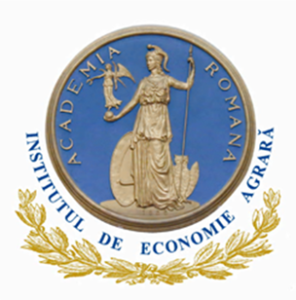 |
IAE-AR – Institute of Agricultural Economics of Romanian Academy (Institutul de Economie Agrara, Academia Romana), Romania |
Institute of Agricultural Economics was founded in 1990 and has conducted fundamental and applied research in the field of agricultural and rural economics. IAE research has fundamental benchmarks like performance, quality of work, connection to national and international research flows etc.
IAE is organized in three departments: Agricultural Markets, Rural Economy and Development and Farm Environmental Economics. In these departments are working about 30 high qualified researchers from various fields – agricultural economics, agri-food economics, rural economy and sociology etc.
Over twenty-five years, the IAE has conducted dozens of research projects in the field of agri-food, rural economy and rural development with national and international funding and actively take part in the research results dissemination, both to the academics and the policy makers’ level. The main research directions have focused on: prospective evaluations of the place and role of the agro-food sector in the national economy; determinants of the agro-food demand and supply; dynamics of the socio –economic transformation in the rural areas and the implementation of institutional patterns necessary for the dissemination of the social innovation practices; assessment of CAP implementation in Romania’s agriculture etc.
IAE has actively involved in international research projects connected to the subject of LIFT, among which is EU FP7 and EEA and Norway grants: FoodSecure – Exploring the Future of Global Food and Nutrition Security; COMPETE – International Comparisons of Product Chains in the Agro-food Sectors: Determinants of their Competitiveness and Performance on EU and International Markets; MFSEE-RO0023 – Conservation of bio and geodiversity, as support for sustainable development and economic and social growth in Hateg – Retezat area; EEA & Norway grants; 2009-2010.
Currently, the Institute is engaged in two H2020 projects, namely PERCEIVE – Perception and Evaluation of Regional and Cohesion Policies by Europeans and Identification with Values of Europe and SURE-Farm – Towards Sustainable and Resilient EU Farming Systems.
Website: www.eadr.ro
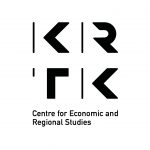 |
KRTK – Centre for Economic and Regional Studies, Institute of Economics (Közgazdaság- és Regionális Tudományi Kutatóközpont, a Közgazdaságtudományi Intézet), Hungary |
The basic activity of the Centre for Economic and Regional Studies, consisting of the Institute of Economics, the Regional Research Institute and the Institute of World Economics, is the scientific analysis of the Hungarian economy, the international economic and political environment, and of economics in general. The Centre undertakes theoretical and empirical studies in the fields of national and world economics, in regional processes and in other interdisciplinary areas of the Social Sciences. The Centre publishes and promotes new research results, develops the scientific tools needed for research and also the databases appropriate and necessary for economic and regional research projects. It formulates conclusions and recommendations for policy matters, develops and participates in Master and PhD university training programs and in the development of the curricula relevant to the areas of science in which the Centre operates.
By unifying excellence in research, authenticity in science, and a commitment to society, the institute network of the Academy is set to produce values for both national and international success in Hungarian and universal science. Building on our national research traditions, being part of the only full-time research institute network in Hungary, our primary aim is to play a fundamental role in promoting the common weal and in building the foundation for our future through valuable scientific achievements based on highly promising discovery research.
The Centre was established on January 1st 2012 with the merger of three academic institutes. The Institute of Economics, the Institute for World Economy and the Institute of Regional Studies remain independent in their scientific activities.
Website: https://krtk.hu/en/homepage
| IRWiR PAN – Institute of Rural and Agricultural Development of Polish Academy of Sciences (Instytut Rozwoju Wsi i Rolnictwa Polskiej Akademii Nauk), Poland |
The Institute of Rural and Agricultural Development of the Polish Academy of Sciences, IRWiR PAN, was established in 1971 and since than it has been a leading national inter-disciplinary research organization (employing sociologists, economists, geographers, demographers, psychologist and anthropologist) focused on monitoring of the on-going socio-economic and environmental challenges facing rural areas. The Institute regularly carries out surveys with farmers and rural citizens at large and provides formal evaluations, including those commissioned by the Polish Ministry of Agriculture and Rural Development, the European Rural Development Network and DG AGRI. The Institute has also been well integrated in the international research community.
Thus, it takes active part in the agricultural policy debate, both in Poland as well as abroad. Recently, IRWiR PAN joined the National Rural Network (KSOW) partnership and has been involved in shaping the Network’s activities, especially within the following priorities: Promoting innovation in agriculture, food and forestry; Activation of the rural population by supporting initiatives stimulating rural development; Creation of jobs in rural areas. Apart from research centred on the topics of food supply chains, organic farming, agricultural cooperatives, rural and agricultural policy, IRWiR PAN has a strong track of regional, national and international economic impact research.
IRWiR PAN is actively involved in international research projects, among which is Horizon 2020 Project entitled SURE-Farm – Towards Sustainable and Resilient EU Farming Systems.
Website: www.irwirpan.waw.pl
 |
DEMETER – Agricultural Economics Research Institute (Ellinikos Georgikos Organismos – Dimitra), Greece |
Hellenic Agricultural Organization “DEMETER” is a legal entity of the public sector, under the auspices of the Hellenic Ministry of Agricultural Development and Food. It was established in 2011 by the merger of four organizations, focusing on agricultural research, vocational training for farmers, quality certification and dairy industry quality issues, respectively. DEMETER consists of four DGs with the Directorate General of Agricultural Research to be the unique national body that carries out multi- and interdisciplinary agricultural research. DEMETER with its 300 Research scientists spread in its Research Institutes and Stations throughout Greece is also in charge of research for technological improvement and development in agricultural, livestock, forest, and fish production. It is also concerned with topics of veterinary, management of marine resources, soil science, land reclamation, processing and preservation of agricultural products, etc.
The Agricultural Economics Research Institute – AGRERI is one of DEMETER’s specialized research institutes and employs a highly specialized scientific staff of significant research capacity. It is the major Greek research institute that focuses on economic, managerial and social issues in the agri-food sector. The AGRERI research team has significant experience in coordinating and/or participating the last 15 years in more than 20 EU (LIFE, FP6, FP7, H2020) and national projects related to various aspects of rural development and entrepreneurship, agriculture, livestock, fisheries, and food supply chains.
The activities of AGRERI cover several thematic areas such as: Agricultural economics and agribusiness management; agricultural policy; socio-economic analysis of organic agriculture; evaluation of the socio-economic and environmental sustainability of production systems; income risk management and climate change; food security, poverty and agricultural development; rural sociology; management of cooperatives, collective entrepreneurship, contract agriculture; sustainable management of organizations and farms; consumer studies; food marketing, management and economics of innovation and technology, organization, management and financing of food and bioenergy supply chains; innovation strategies for consumer-driven fruit supply chains; sustainable rural development and social capital; environmental and natural resource economics.
AGRERI is actively involved in international research projects:
– Farmers’ Pride – Networking, partnerships, and tools to enhance in situ conservation of European plant genetic resources);
– LIFE ANDROS PARK – Conservation of priority species and habitats of Andros Island protected area. Integrated socio-economic considerations;
– SAGE – Innovation for Sustainable Sheep and Goat Production in Europe.
Food Track-A transparent and traceable food supply chain for the benefit of workers, enterprises and consumers: the role of a multi-sectoral approach of industrial relations and corporate social responsibility.
Website: www.agreri.gr
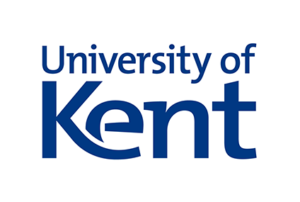 |
UNIKENT – University of Kent, United Kingdom |
University of Kent is known as the UK’s European University with campuses in the UK and specialist postgraduate centres in Brussels, Paris, Athens and Rome where studies are underpinned by the specialist resources of each location. In addition to these centres, UNIKENT has a large number of academic partnerships across Europe, Asia and the United States; some of Kent programmes offer dual UK and European qualifications, as well as jointly supervised PhD awards.
The two University schools involved in LIFT – the School of Economics and the School of Anthropology & Conservation (SAC) are within the Faculty of Social Sciences of the University.
The overall research portfolio in the School of Economics is organized within research centres and groups. The Centre for European Agri-Environmental Studies (CEAS), which was created in 1971, has a longstanding interest and capability in agricultural policy analysis, rural and small farm development, economic modelling and environmental analysis. CEAS also has experience of interdisciplinary research collaboration with ecologists and agricultural scientists across a range of projects. CEAS members are well-known in Europe for their expertise in agricultural economics, and rural and environment studies. They have participated in several collaborative research projects, e.g. FP6 ‘Structural Change in Agriculture and Rural Livelihoods’ (SCARLED), FP7 ‘Comparative Analysis of Factor Markets for Agriculture across the Member States’ (Factor Markets), large nationally funded projects, e.g. Rural Economy and Land Use (RELU) project ‘Overcoming Market and Technical Obstacles to Alternative Pest Management in Arable Systems’.
Important activities of the CEAS are to disseminate research results to stakeholders and to influence thinking about the future of food and agri-environmental policy in the UK and Europe. To this end, members of CEAS have participated in advisory committees in different institutions, professional associations, executive boards and editorial committees, for example DG Agriculture and Rural Development, European Parliament, Department for Environment, Food & Rural Affairs, UN Food and Agricultural Organisation, European Review of Agricultural Economics.
The School of Anthropology & Conservation (SAC) is at the centre of contemporary global debates about environmental change, human evolution, biodiversity loss and the response of distinctive social-cultural communities to globalisation. Its expertise is broadly encompassed within four research pillars: Biological Anthropology, Socio-cultural Anthropology, Conservation Biology and Human Ecology. Due to the international and significant impact of its research, the School attracts grants and scholarships from funders including Leverhulme Trust, the Economic and Social Research Council, the Natural Environment Research Council, European Commission, European Research Council and various government and non-government agencies around the world.
SAC staff members have worked in over 80 countries and have published in some of the world’s most prestigious journals in the field (Nature, PNAS, Cultural Anthropology, Journal of Human Evolution). Within SAC, there are six research centres that facilitate cross faculty and multi-institutional research activity across a broad spectrum of disciplines. The most recently established centre (2015) is Kent’s Interdisciplinary Centre for Spatial Studies (KISS) which is the UK’s only research centre dedicated to a holistic study of spatial patterns and phenomena.
Website: www.kent.ac.uk
 |
IT – INRAE Transfert S.A., France |
INRAE Transfert is a subsidiary company of INRAE (French National Institute for Research on Agriculture, Food and the Environment) created in 2001 and located in six different locations in France (Paris, Nantes, Clermont-Ferrand, Toulouse, Montpelier and Narbonne). The company is strongly involved in the set-up and management of European research projects funded by the European Commission, and acts as an assistance team to the researchers. INRAE Transfert is a partner in nearly 30 European research and innovation projects under the Horizon 2020 programme, covering different aspects such as food, agriculture and the environment. The company also transfers research results into innovations acting as a bridge between research and businesses. The areas of expertise consist of biomass transformation processes, animal and plant production, the environment and food. In addition, INRAE Transfert promotes the development of innovative companies.
Website: www.inra-transfert.fr/en
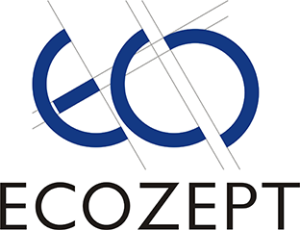 |
ECOZEPT – ECOZEPT GbR, Germany |
ECOZEPT is a German-French based private market research and marketing consulting agency that is engaged, since its foundation in 2000, in the matter of sustainable agro-food markets. A main weight lies on the research and development of market intelligence systems and marketing approaches for the niche markets in the agro-food business (organic products, regional products, typical products etc.). Partner of research and teaching institutions, ECOZEPT is part of an active network of similar agencies, governmental institutions, the agro-food industry (foremost SME) and extension services in Germany and France, but as well in other European countries. ECOZEPT team has specialists from many different branches: food and agricultural sector, marketing and market research, and environmentalists who work to protect nature, the water supply and flood prevention. Out of the team of a dozen agriculture and marketing experts ten are working at the headquarters in Freising, next to Munich (Germany), while two people are working in the French office in Montpellier.
Website: www.ecozept.com
